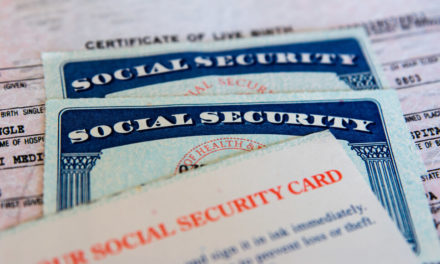While markets are in turmoil and your retirement accounts are looking a little ragged, there’s another benefits program that will help bolster your funds in retirement, begging the question: How can I maximize my Social Security benefits?
We’ve harped on how it’s probably in your best interest to take a hands-off approach to your 401(k) and give financial markets some time to bounce back after the coronavirus panic has subsided, so looking at how to get the most out of Social Security is a great way to keep retirement planning on your mind without having to look at all those terrible numbers.
With most older Americans needing around 70% to 80% of their former earnings to live comfortably, eking out as much as you can from Social Security can help supplement your retirement, so you won’t have to to dip into your nest egg as much.
Let’s dive into some ways you can maximize your Social Security while you are preparing for retirement.
4 Ways to Maximize Your Social Security Benefits
Work at Least 35 Years
The Social Security Administration uses your 35 highest-earning years of employment to calculate your benefits amount, so working at least that many years is key to getting the biggest check possible for you every month.
If you’ve already knocked out 35 years of work, but you aren’t ready to leave the workforce, you can work longer and potentially eliminate some of those lower-earning years from the equation. The biggest thing is just to try to get to 35 years, because the SSA will use $0 for every year you are short, bringing down your average income.
Increase Your Income During Your Career
 Boosting your earnings while working can be a boon for your retirement and Social Security, which means every extra dollar you earn has a short and long-term benefit.
Boosting your earnings while working can be a boon for your retirement and Social Security, which means every extra dollar you earn has a short and long-term benefit.
Here are some ways you may look to increase your income or give you ammo to fight for a raise at your next review, per USA Today:
- Obtain professional licences or certifications.
- Take courses that improve your skill set or teach you something new.
- Research salary data within your field so you know your pay is in line with your peers.
It also pays to just do the best job you possibly can every day you come into work. Maybe thinking about both the short and long-term benefits could provide a little extra motivation.
Delay Social Security Benefits Past Full Retirement Age
Another great way to boost your monthly Social Security benefits checks is to delay benefits past full retirement age (FRA), which is somewhere between age 66 and 67 currently. For every year you don’t start benefits past your FRA, you will see an 8% boost to your benefits.
Here’s an example, per The Motley Fool:
Imagine you’re entitled to $1,600 a month from Social Security at FRA of 67. Wait until 70 to claim those benefits instead, and you’ll get paid $1,984 — a fairly significant difference.
The Social Security Administration found the average monthly check was $1,503 in January 2020, so that example is on the high end. But the strategy still holds up no matter what you receive.
Retire in a state that doesn’t tax Social Security
While many states don’t tax Social Security, there are 13 that still do: Colorado, Connecticut, Kansas, Minnesota, Missouri, Montana, Nebraska, New Mexico, North Dakota, Rhode Island, Utah, Vermont and West Virginia. Check out our guide to how states tax Social Security here.
Moving out of one of these states means your monthly checks will be bigger, but that doesn’t mean your benefits are completely safe. Your Social Security can be hit by a federal tax if your combined earnings between your benefits and any other income exceed a certain amount. Here’s a handy chart that lays out the income limits:
| FILING AS | COMBINED INCOME | PERCENTAGE OF BENEFITS TAXABLE |
| SINGLE INDIVIDUAL | BETWEEN $25,000 AND $34,000 | UP TO 50% |
| Married, filing jointly | Between $32,000 and $44,000 | Up to 50% |
| Single individual | More than $34,000 | Up to 85% |
| Married, filing jointly | More than $44,000 | Up to 85% |
Those amounts aren’t enormous, so there’s a good chance you’ll face a levy. Roth accounts are great if you are in danger of withdrawing too much because any money taken out of a Roth account doesn’t count toward your income that can be taxed.
You may be fretting about your retirement accounts right now, but using some of these tactics can help maximize your Social Security benefits and set you up for more peace of mind in your golden years.
• You can find all of the latest and most important news about Social Security here on Money & Markets.
For our friends: Anyone who wants to grow and protect their money in retirement needs to hear this. For the first time publicly, Bill O’Reilly comes clean about what happened to his money.




